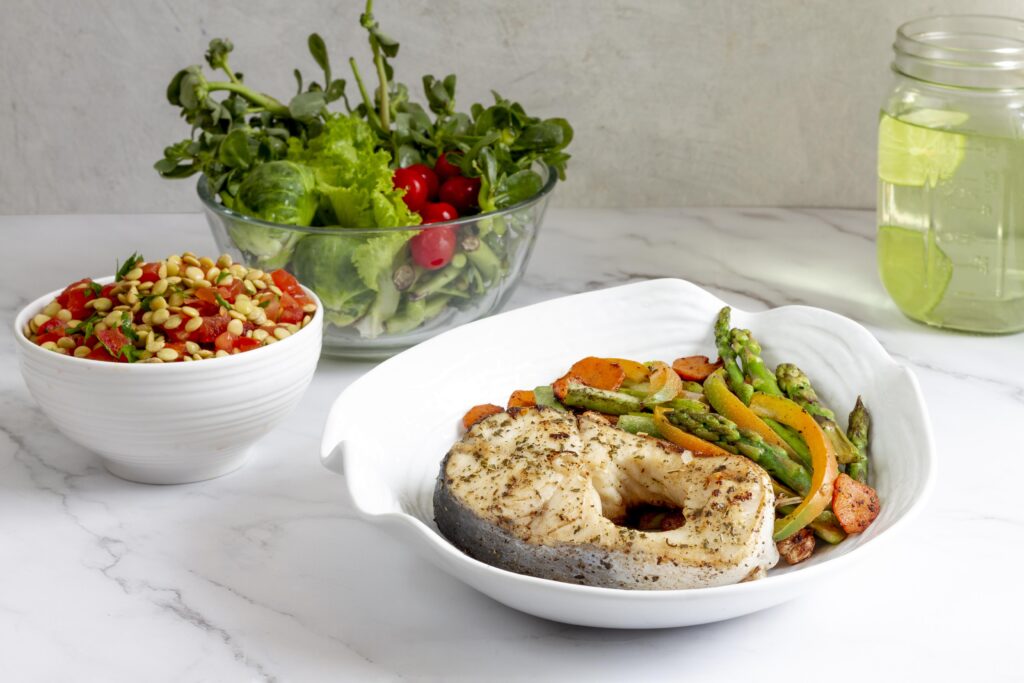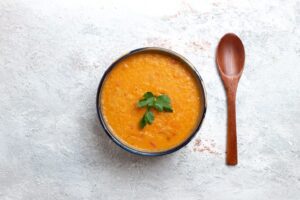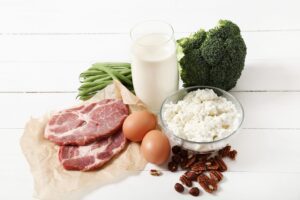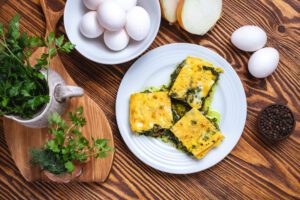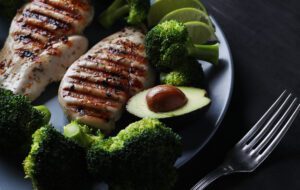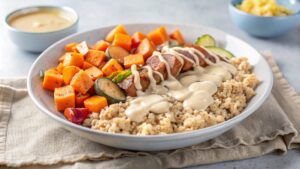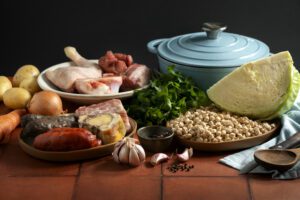Pancreatic cancer is a severe illness that hits the pancreas cells directly. The pancreas’ role is simple to make insulin and digestive enzymes that turn food into fuel. But, when this organ gets cancer, it’s a double whammy. Digestion suffers. And so does the person’s general health.
We’ll thoroughly discuss “diet and pancreatic cancer” aiming to boost the well-being of patients through healthy eating habits.
Table of Contents
Understanding Pancreatic Cancer
Pancreatic cancer is when cells in the pancreas start to grow insanely fast. It’s a nasty type of cancer because spotting it early is a hard task.
What Is Pancreatic Cancer?
The pancreas is a gland located beneath the stomach. It performs two important functions:
- Produce digestive enzymes: which break down food in the small intestine.
- Produce hormones: like insulin and glucagon, which control blood sugar levels.
People with pancreatic cancer face difficulty. The pancreas doesn’t work well. This causes issues with digestion and getting nutrients.
Symptoms And Diagnosis
Some common symptoms of pancreatic cancer are:
- Unexplained Weight Loss
- Jaundice (Yellowing of Skin and Eyes)
- Upper Abdominal Pain
- Loss of Appetite
- Nausea and Vomiting
Every patient’s symptoms can differ, sometimes mimicking other ailments. High-tech imaging techniques like CT scans, MRIs, and biopsies help in making the right diagnosis.
Effect on Digestion and Nutrition
The pancreas directly controls digestion. When the pancreas functions poorly, the body cannot absorb nutrients properly. Because of this:
- Patients lose weight.
- Energy levels decrease.
- The immune system becomes weak.
This underlines the importance of tailoring a proper diet and pancreatic cancer plan for better health outcomes.
Role of Diet and Pancreatic Cancer
When dealing with pancreatic cancer, a well-thought-out diet becomes more than just a part of recovery, it becomes a cornerstone of treatment. The way food choices support symptom management, energy levels, and recovery makes the link between diet and pancreatic cancer clear.
Why is diet so important?
- Helps in managing side effects of treatment: The side effects of chemotherapy and radiation therapy like nausea, vomiting, and fatigue can be controlled through diet.
- Makes the immune system strong: The defense mechanism of the body improves through a balanced diet.
- Replenishes the deficiency of nutrients: Digestion becomes weak due to pancreatic cancer and the deficiency of nutrients can be overcome with the right diet.
Why is it necessary to take advice from a nutritionist?
Every patient’s dietary needs are different. A professional nutritionist creates a personalized diet chart based on the patient’s medical history and treatment plan. Better health and symptom management are guaranteed by this personalized method for diet and pancreatic cancer.
Nutritional Guidelines for Better Health
A diet for pancreatic cancer patients should be very thoughtful and balanced. It is important to focus on these nutrients:
Key Nutrients to Include
1. Protein:
Protein is essential for building strong muscles and for the healing process. Include high-protein foods such as:
- Lean meats (chicken and turkey)
- Fish (salmon and tuna)
- Eggs
- Plant-based sources (tofu and lentils)
2. Healthy Fats:
Healthy fats are a good source of energy. These fats also control inflammation. Sources:
- Olive oil
- Avocado
- Nuts and seeds (almonds, walnuts)
3. Complex Carbohydrates:
Complex carbs are very beneficial for energy. They slow down digestion and keep blood sugar levels stable. Examples:
- Brown rice
- Whole-grain bread
- Oats
4. Vitamins and Minerals:
- Vitamin A and C (you can get it from carrots and oranges)
- Vitamin E (almonds and spinach)
- Zinc and selenium (nuts and seafood)
Foods to Include
- Fresh fruits and vegetables (lightly cooked for better digestion)
- Soups and smoothies (easy to digest)
- Protein shakes and meal replacement drinks (for energy boost)
Foods to Avoid
- Deep-fried foods
- Sugary drinks and desserts
- Processed foods (like packaged snacks and canned soups)
Emphasizing these food categories strengthens the diet and pancreas canceling connection. It helps patients keep healthier.
Special Considerations for Pancreatic Cancer Patients
Each patient’s experience is different, so it’s important to manage some specific symptoms:
Common Symptoms and Their Solution
1. Loss of Appetite:
- Take small and frequent meals.
- Include High-calorie snacks like peanut butter and protein bars.
2. Nausea and Vomiting:
- Ginger tea can be helpful.
- Consume bland foods like crackers and boiled potatoes.
3. Weight Loss:
- Use High-calorie drinks like milkshakes and smoothies.
- Include Full-fat dairy products.
Pancreatic Enzyme Replacement Therapy (PERT)
This therapy is for those patients whose pancreas does not digest properly. It contains enzymes that help break down food so that the absorption of nutrients is improved.
Sample Diet Plan

A practical diet plan that may be helpful for pancreatic cancer patients:
• Breakfast: Oatmeal with almond milk, berries, and honey.
• Snack: Greek yogurt and walnuts.
• Lunch: Grilled chicken, steamed broccoli, and quinoa.
• Snack: Smoothie made with banana, spinach, and protein powder.
• Dinner: Baked salmon, roasted sweet potatoes, and sautéed green beans.
• Dessert: Dark chocolate and a handful of mixed nuts.
Tips:
• Prep meals to reduce the stress of cooking.
• Prefer easy-to-digest recipes.
Scientific Evidence and Case Studies
Scientific Studies
Research suggests that:
- High-protein and low-fat diet improves the quality of life of cancer patients.
- Pancreatic enzyme therapy significantly improves nutrient absorption.
Case Study:
A patient, 55 years old, who was facing severe weight loss and fatigue, adopted a high-calorie diet and enzyme therapy. Within 6 months, his weight stabilized and his digestion improved.
Emotional and Practical Support
Pancreatic cancer takes a mental toll, not just physical. So emotional support is important:
1. Motivation: Maintain a journal and track your progress.
2. Caregiver’s role: Support from family and friends is very important in recovery.
3. Online communities and resources: Join support groups and follow reliable health websites.
Conclusion
Battling pancreatic cancer is hard. Yet, the right food and correct nourishment can ease the path. Each patient requires a unique diet. So, stick to a tailored plan. This article aimed to give you an all-around guide on “food & pancreatic cancer”. This will support your journey to improve your health.
FAQs
What is the best diet for pancreatic cancer patients?
High-protein, low-fat, and nutrient-dense foods that are easy to digest are best.
Can supplements help in managing pancreatic cancer?
Yes, taking enzyme and multivitamin supplements on doctor’s advice can improve digestion and nutrient absorption.
How does pancreatic enzyme therapy work?
This therapy compensates for the deficiency in the pancreas and helps digest food efficiently.
Are there any specific foods that reduce the risk of cancer progression?
Anti-inflammatory foods such as leafy greens, fatty fish, and berries are beneficial.
How to manage weight loss during pancreatic cancer treatment?
Include high-calorie foods and snacks. Use frequent meals and meal replacement drinks.

